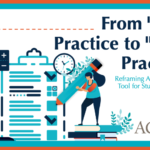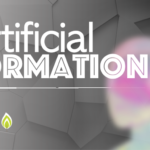The end of a semester is approaching, which means the start of the Christmas season is also here. As I think about the holiday ahead, I think about what it will mean to “turn things off” for a short while – to put aside the email, the task list, the thinking about what is next for the job. While important to my vocation, it is these emails and task lists that often cloud my vision in seeing the importance of rest. Although rest should not be something we relegate only to a holiday, but rather build into the regular rhythms of our work, Christmas break brings a great opportunity to practice the idea of Sabbath-type rest (Exo 20:9-10).
Weaving rest into our work not only helps us practice good biblical virtues, but it allows us to participate in the redemption of our work. In Redeeming Administration, Garrido (2013) emphasizes that “we need to start practicing now who we want to be in the future” (p. 192). In that vein, I want to offer a few reflections on rest that are relevant to our time leading up to and through the holidays.
Practice Celebration and Gratitude
In the coming days when finals are ending, commencement ceremonies are wrapping up, and a few days remain until the official university holiday begins, I encourage you to take a moment to practice celebration and gratitude as a form of rest. Yes, I know you have things to do and projects to finalize and plans for the spring in which you need to look ahead, but gratitude can be an act that helps us rest as the year closes. Researchers have identified how a posture of gratitude can improve multiple beneficial outcomes in our lives (Jans-Beken et al., 2020), and doing so within our work – while not necessarily as relaxing as binging the latest Netflix show – can be restful to our souls and uplifting to our colleagues.
Steve Conn, in Glanzer and Smith’s (2023) volume on Stewarding Our Bodies, discusses gratitude practices for students, including writing thank-you notes and counting blessings. I encourage you to mirror such recommendations professionally. Take a few brief moments in the next week or two to hand write a note of thanks to a colleague on campus for their efforts to support students or their willingness to collaborate. Or take a quiet minute in your office to list out reasons to be thankful for things you feel blessed by. These practices, while good for students’ mental health, can also be restful to us as professionals, and encouraging to our partners in this work.
Know That Rest is Not Always Relaxing
“Rest” is often something I confuse with “relaxation,” when in reality these things can seem like anything but synonyms. While at times rest can surely be relaxing, the point is not to merely lounge in a beach chair (though, that sure sounds fun!). I was reminded of this recently when my relatives came to visit us in North Carolina for Thanksgiving. We wanted to maximize their weekend with our family and we packed in a number of activities. When I returned to work on Monday, I realized I had a “restful” weekend – in that I felt recharged by spending enjoyable quality and casual time invested with family – yet I was not necessarily “relaxed” due to multiple days on-the-go. In a sense, I got to practice a Sabbath-type rest, meaning I ceased from and enjoyed the results of my work, but I did not relax in the sense of “doing nothing.”
There are certainly days where I wish I could (and admittedly sometimes do) spend some time sitting on my couch watching TV for a few hours. While I feel relaxed during this time, and it is fun to take a break, it is not particularly restorative; it does not necessarily uplift my spirit. Just as God shifted from making to enjoying during the creation process (Gen 2:2-3), we are called to detach from our work and see how we were created to be more than our production or output in our jobs. This is not, and does not have to be, a fully relaxing experience. In other words, rest is good, even if it is active.
Once your Christmas break gets here, I encourage you to find ways to rest, even if you do not feel relaxed from it. This may be spending that extra minute in conversation with the relative who has too many opinions, but really just needs some encouragement and truth. Or it could be using some home time to engage with your kids in a playful game outside, even though the couch seems much more appealing. Maybe this means volunteering with your family at a local food bank or shelter to be reminded of the importance of giving back. Whatever it looks like for you, remember that rest does not always need to equate to relaxation. To feel rested, find the things that help you pause and remember why all your efforts during the semester are important.
Turn it Off
I acknowledge that some of you may be in positions that require you to be “on” during the holidays. Perhaps you have on-call care team duties for students staying on campus, or are in a residence life role overseeing students staying in their hall over the break. In such cases, it may not be feasible to “turn it off,” and I hope you get an opportunity in the near future to fully rest from your work. But for those of you without such demands, I challenge you to turn it off – the email, the social media, the calendar reminders. Trust me, I know this is hard, and I struggle with this regularly, but know that when you mentally take a break from your phone and notifications you allow your heart and mind to rest. It is difficult to be fully present in a Christmas celebration (whatever that looks like for you) if you are distracted with emails and lists.
One of the reasons this practice is so hard (and why ignoring it often leads to burnout) is because our culture at-large disguises busyness as productivity. Garrido (2013) notes, “In American society, time is a measurement of worth. If I am very busy, it means that I must be very important” (p. 190). This holiday season, I encourage you to remember that your worth is not derived from your busyness (or other’s perception of it), and to turn off, as able, the things that pull you toward busyness and away from rest. Try to avoid bringing everything home over the break, and instead be present, be engaged, and experience rest as we celebrate the birth of our King.
Spend Time in Prayer
One of the best ways to rest this holiday season is to engage in some time of intentional prayer. I imagine you have some form of habitual prayer throughout the semester, but the holidays allow for a space to engage in prayer that may feel less rushed, and can result in feelings of rest (especially given how drained you may feel as the year wraps up). Our creator wants us to exchange our burdens – yes, even those experienced through our work in student development – for a sense of peace and rest. Jesus tells us “Come to me, all who labor and are heavy laden, and I will give you rest” (Matt 11:28).
Spending time in prayer with the goal of rest may include specifically asking Him to lighten your emotional load in preparation for the semester ahead. Or it may include listing specific students or staff members (such as the ones working on-call over the break!) in a journal and spending one minute to pray for them each individually on a given morning throughout the holiday. However you engage in prayer, doing so will not only bring you in direct conversation with the Lord, but will allow Him to work on your heart with the goal of rest this Christmas season.
Conclusion
Our abilities to build rest into the days leading up to Christmas break and throughout the time we are away from our jobs is important. However, rest will look different for each of us based on our holiday schedules, our allotted time off, our travel plans, etc. As we near the end of fall and the thick of Christmas season, I encourage you to practice gratitude, remember that rest is not always relaxing, turn things off when you can, and spend some time in prayer. The work you do in student development is important to our larger efforts of redeeming learners and learning, and I pray you take the time to rest in the weeks to come in order to bring your best self to your work once the spring arrives.
References
Conn, S. (2023). Mental health and spiritual disciplines. In P. Glanzer & A. Smith (Eds.), Stewarding our bodies: A vision for Christian student affairs (pp. 177–190). Abilene Christian University Press.
Garrido, A. M. (2013). Redeeming administration: 12 spiritual habits for Catholic leaders in parishes, schools, religious communities, and other institutions. Ave Maria Press.
Jans-Beken, L., Jacobs, N., Janssens, M., Peeters, S., Reijnders, J., Lechner, L., & Lataster, J. (2020). Gratitude and health: An updated review. The Journal of Positive Psychology, 15(6), 743-782.







